— Rothmus 🏴 (@Rothmus) January 25, 2024
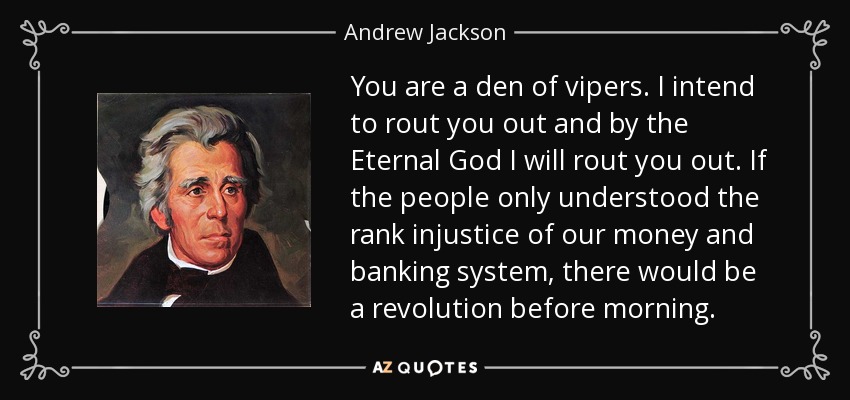
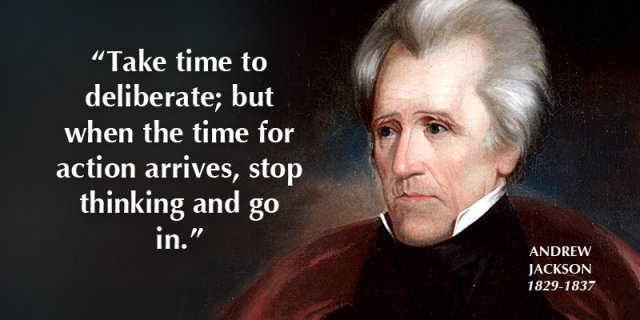

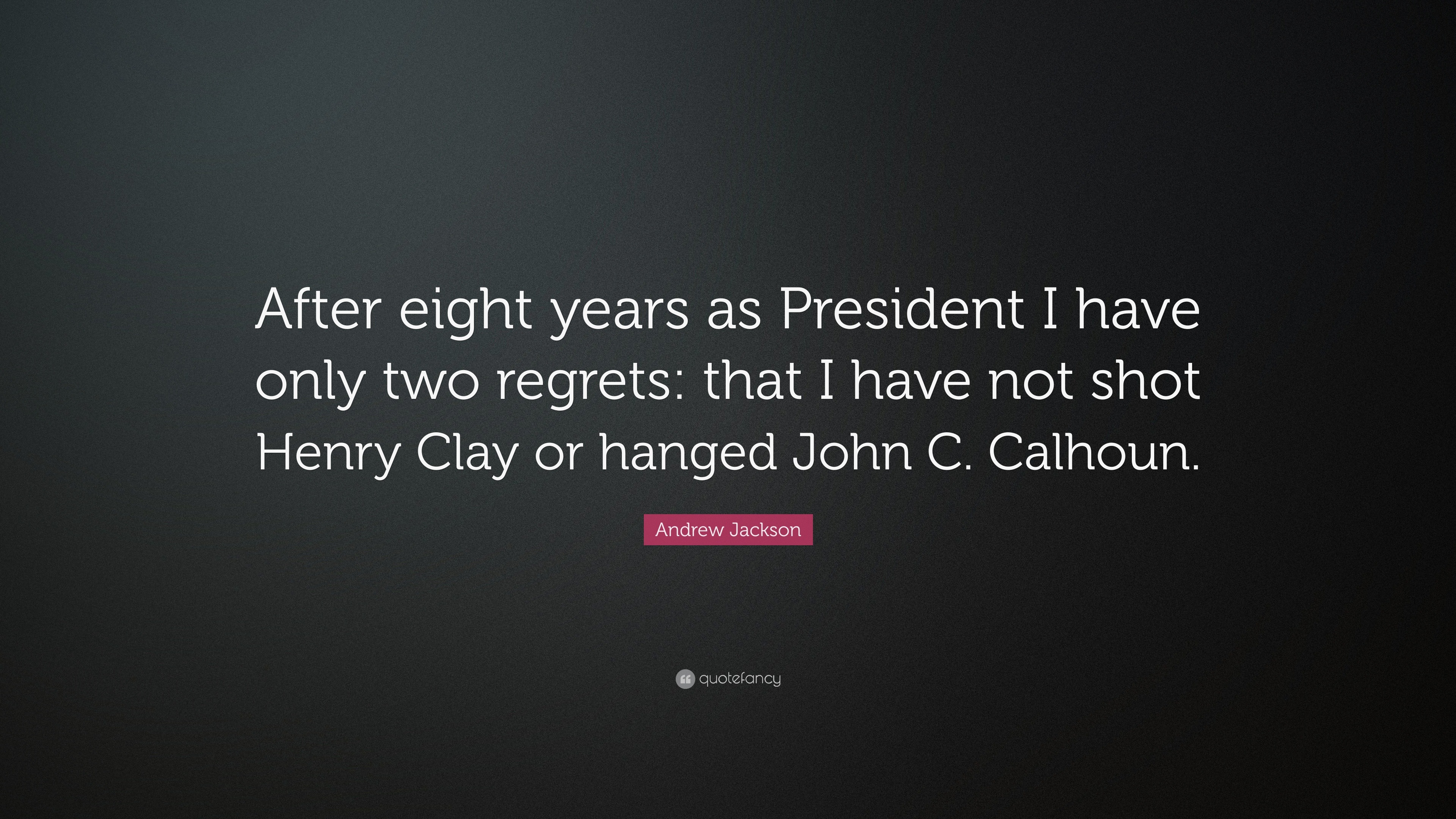
Guest Post by Nick Giambruno
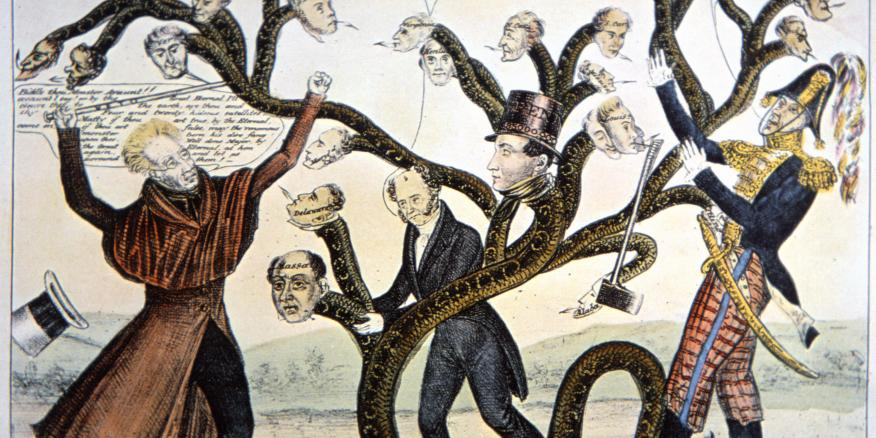
It’s hard to believe the United States government was ever debt-free.
But it happened once—in 1835—thanks to President Andrew Jackson. He was the first and only president to pay off the national debt completely.
One biographer says the former president viewed debt as a “moral failing,” a sort of “black magic.”
When he became president, Jackson was determined to rid the US of its national debt. After all, debt enslaves you to your creditors.
Jackson knew that being debt-free was essential to independence. This outlook resonated with many Americans back then.
With that in mind, Jackson attacked the institutions and powerful people who promoted and enabled the federal debt. This included the banking elites and the Second Bank of the United States, the country’s central bank at the time and precursor to today’s insidious Federal Reserve system.
Continue reading “President Andrew Jackson and an Outrageous Crime Inflicted on the Next Generation”
by Nick Giambruno

With over $30 trillion in debt and counting, it’s hard to believe the United States government was ever debt-free.
But it happened once—in 1835—thanks to President Andrew Jackson. He was the first and only president to pay off the national debt completely.
One biographer says the former president viewed debt as a “moral failing,” a sort of “black magic.”
Continue reading “President Andrew Jackson and an Outrageous Crime Inflicted on the Next Generation”
by Anton Chaitkin
Look back, from our present national disintegration, into the defiantly optimistic thinking of the Americans of the 1776 Revolution. They foresaw their grandchildren prospering, with power over nature beyond all prior experience.
Understand them by reading the prophecy of Benjamin Franklin, in the accompanying box.
The founding Americans’ passion for improvement could bring a profound result for prosperity, but only if the Revolutionary country could control its own economy against the global power of the British Imperial enemy.
Acting for their grandchildren’s survival, the Founders set up the Bank of the United States to guide the economy and foster the necessary fundamental change.
This founding nationalist framework of our first Treasury Secretary Alexander Hamilton, disputed by Thomas Jefferson and his allies, was nevertheless retained by them; when it expired, they revived it.
Britain’s American political agents made Andrew Jackson President, and with populist noise, he took down the National Bank, ceding control to the Money Power centered in London.
On January 8, 1835, President Andrew Jackson achieves his goal of entirely paying off the United States’ national debt. It was the only time in U.S. history that the national debt stood at zero, and it precipitated one of the worst financial crises in American history.
The elimination of the national debt was both a personal issue for Jackson and the culmination of a political project as old as the nation itself. Since the time of the Revolution, American politicians had argued over the wisdom of the nation carrying debt. After independence, the federal government agreed to take on individual states’ war debts as part of the unification of the former colonies. Federalists, those who favored a stronger central government, established a national bank and argued that debt could be a useful way of fueling the new country’s economy. Their opponents, most notably Thomas Jefferson, felt that these policies favored Northeastern elites at the expense of rural Americans and saw the debt as a source of national shame.
Continue reading “THIS DAY IN HISTORY – The U.S. national debt reaches $0 for the first time – 1835”
As no presidential candidate had received a majority of the total electoral votes in the election of 1824, Congress decides to turn over the presidential election to the House of Representatives, as dictated by the 12th Amendment to the U.S. Constitution.
President Andrew Jackson announces that the government will no longer use the Second Bank of the United States, the country’s national bank, on September 10, 1833. He then used his executive power to remove all federal funds from the bank, in the final salvo of what is referred to as the “Bank War.”
Continue reading “THIS DAY IN HISTORY – Andrew Jackson shuts down Second Bank of the U.S. – 1833”
On January 8, 1835, President Andrew Jackson achieves his goal of entirely paying off the United States’ national debt. It was the only time in U.S. history that the national debt stood at zero, and it precipitated one of the worst financial crises in American history.
The elimination of the national debt was both a personal issue for Jackson and the culmination of a political project as old as the nation itself. Since the time of the Revolution, American politicians had argued over the wisdom of the nation carrying debt. After independence, the federal government agreed to take on individual states’ war debts as part of the unification of the former colonies.
Continue reading “THIS DAY IN HISTORY – The U.S. national debt reaches $0 for the first time – 1835”
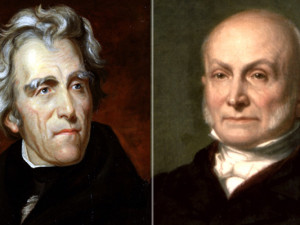
As no presidential candidate had received a majority of the total electoral votes in the election of 1824, Congress decides to turn over the presidential election to the House of Representatives, as dictated by the 12th Amendment to the U.S. Constitution.
As no presidential candidate had received a majority of the total electoral votes in the election of 1824, Congress decides to turn over the presidential election to the House of Representatives, as dictated by the 12th Amendment to the U.S. Constitution.
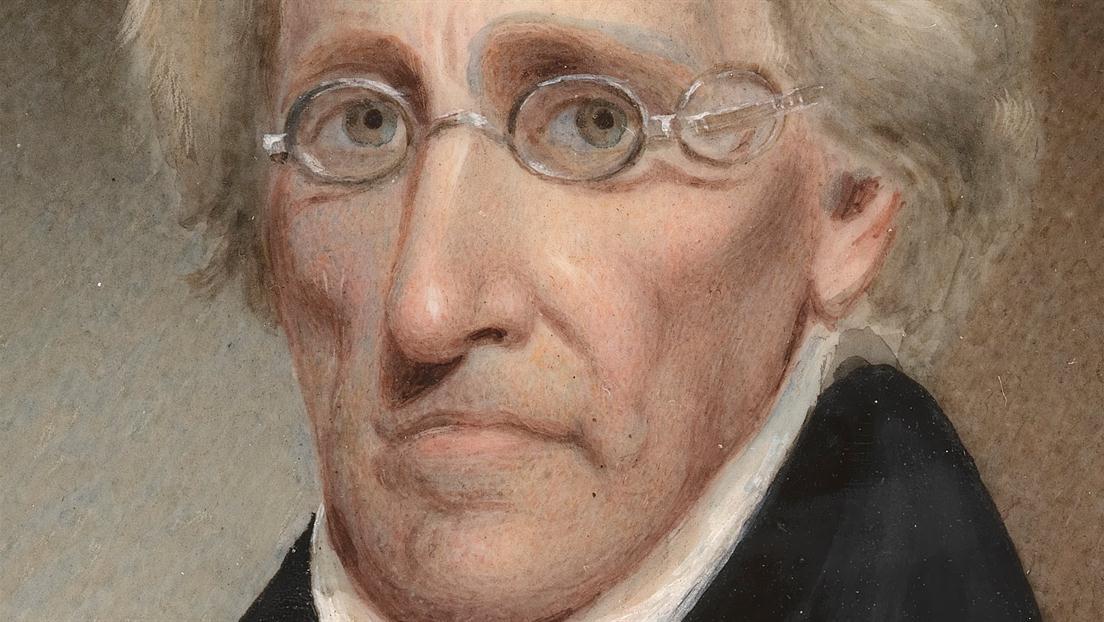
President Andrew Jackson announces that the government will no longer use the Second Bank of the United States, the country’s national bank, on September 10, 1833. He then used his executive power to remove all federal funds from the bank, in the final salvo of what is referred to as the “Bank War.”
Continue reading “THIS DAY IN HISTORY – Andrew Jackson shuts down Second Bank of the U.S. – 1833”
“Gentlemen! I too have been a close observer of the doings of the Bank of the United States. I have had men watching you for a long time, and am convinced that you have used the funds of the bank to speculate in the breadstuffs of the country.
When you won, you divided the profits amongst you, and when you lost, you charged it to the bank. You tell me that if I take the deposits from the bank and annul its charter I shall ruin ten thousand families. That may be true, gentlemen, but that is your sin!
Should I let you go on, you will ruin fifty thousand families, and that would be my sin! You are a den of vipers and thieves. I have determined to rout you out, and by the Eternal, (bringing his fist down on the table) I will rout you out.”
Andrew Jackson, The original minutes of the Philadelphia bankers meeting from Andrew Jackson and the Bank of the United States (1928) by Stan V. Henkels
“Believe in truth. To abandon facts is to abandon freedom. If nothing is true, then no one can criticize power, because there is no basis upon which to do so. If nothing is true, then all is spectacle. The biggest wallet pays for the most blinding lights. Fascists rejected reason in the name of will, denying objective truth in favor of a glorious myth articulated by leaders who claimed to give voice to the people.”
Timothy Snyder, On Tyranny
On May 30, 1806, future President Andrew Jackson kills a man who accused him of cheating on a horse race bet and then insulted his wife, Rachel.
Contemporaries described Jackson, who had already served in Tennessee’s Senate and was practicing law at the time of the duel, as argumentative, physically violent and fond of dueling to solve conflicts. Estimates of the number of duels in which Jackson participated ranged from five to 100.
“It is to be regretted that the rich and powerful too often bend the acts of government to their selfish purposes.”
Andrew Jackson, On the Second Bank of the United States
“Jim, lad, there be consequences an’ then there be consequences. Devil take ’em all, says I, and pass aft the rum.”
Robert Louis Stevenson, Treasure Island
“If you have a garden and a library, you have everything you need.”
Cicero